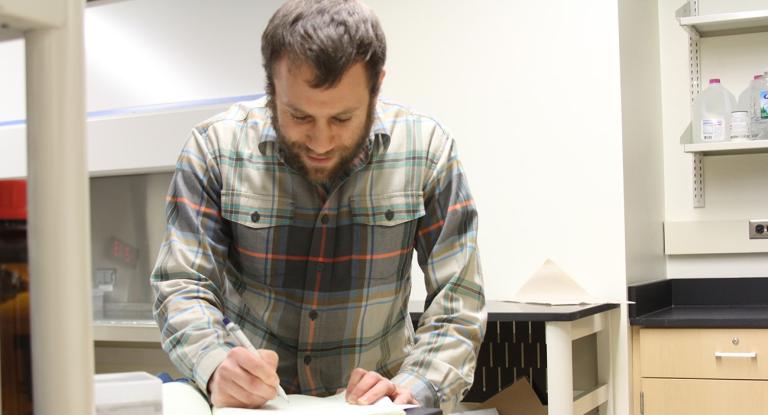
“I think it’s really important that what we teach in the classroom has some real world application.”
A group of Kettering University students in an ecology course recently got a lesson in how to take what they learned in classroom to make a difference in the environment.
The students in Dr. Jim Cohen’s ecology course took to YouTube to share Public Service Announcements they created on various environmental issues.
Through an effort to prepare Kettering students for their careers, the project allowed the students to gain skills in communication and information sharing that may have stretched beyond their comfort zones -- and it was all for a good cause.
“I think it’s really important that what we teach in the classroom has some real world application, and bringing in current events that the students are interested in really helps with that. That is particularly the case for ecological and biological issues,” said Cohen, assistant professor of Biology. “By addressing current environmental issues, students are becoming knowledgeable about these topics, which is important for an informed public.”
The students worked in groups and produced five different PSAs, covering topics of overpopulation, fracking, sea lampreys, lion conservation and the effect of Bt corn (or genetically modified corn) on Monarch Butterflies.
“Everyone is affected by ecological issues. There are a lot of them throughout Michigan and in the U.S. and nationwide,” Cohen said. “The PSAs presented the students with a different way of thinking about these topics”
The SA addressing lion conservation noted that African Lion population has decreased by 48.5 percent in the students’ lifetimes, and the lions are facing extinction by 2050. They urged for more legislation and observation to help change the future of the lions.
Another group was stressing the importance of controlling and reducing the number of sea lampreys in the Great Lakes. By 1938, the sea lampreys had spread to all five Great Lakes, which had a profound negative impact on wildlife and fisheries in the lakes.
While creating awareness for the public, the students learned how to work collaboratively in groups, as well as a new way of communicating an important message.
It was about taking their knowledge from the classroom and turning it into something practical. It wasn’t just about ecology, but about how everyday people are affected by a changing environment.
“Because ecological issues can have such an emotional component, it was important that everything be grounded in science,” Cohen said. “The students gain the knowledge of ecological issues, while learning a different approach to presenting information to large groups of people. From this assignment, the students are learning to understand there are different ways to communicate with the public through a more technical audience.”